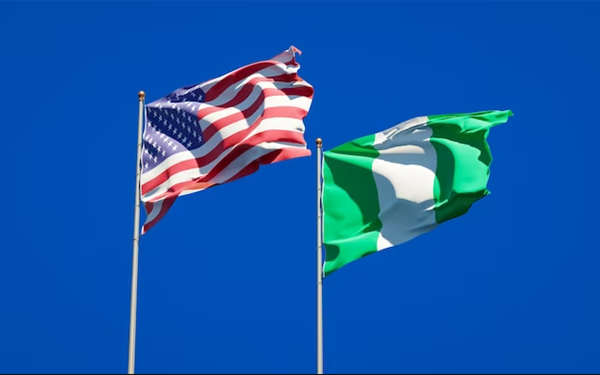The United States has officially commended the Nigerian government and its security agencies for the successful capture and arrest of two globally wanted Al-Qaeda leaders, in what Nigeria’s Presidency has called “a major breakthrough” in the country’s fight against Islamist terrorism.
In a post on its official X handle, the U.S. Mission in Nigeria declared: “We commend the Nigerian Government and security forces on the successful arrest of wanted #Ansaru leaders, Mahmud Muhammad Usman (aka Abu Bara’a) and Mahmud al-Nigeri (aka Mallam Mamuda). This is a significant step forward in Nigeria’s fight against terrorism and extremism.”
Pan-Atlantic Kompass had reported that Nigeria’s National Security Adviser, Nuhu Ribadu, attributed the arrests to a high-stakes, intelligence-led operation conducted from May to July 2025.
While announcing the arrests at a press briefing in Capital Abuja over the weekend, Ribadu described the suspects as “masterminds of the infamous July 2022 attack on the Kuje Medium Security Custodial Centre,” which enabled the escape of hundreds of inmates, including some high-profile terrorist operatives. He emphasized: “The targeted operation … led to the capture of two top Ansaru leaders who have been responsible for masterminding several terrorist attacks against Nigeria over the past years.”
Both suspects—Usman, the self-styled “Emir of Ansaru,” and his deputy, al-Nigeri—have long held spots on Nigeria’s most-wanted list and were also internationally wanted.
Ribadu highlighted that their capture follows collaboration between the Department of State Services (DSS), the Nigerian Correctional Service, and other intelligence agencies.
Experts believe the arrests could cripple Ansaru’s operational capacity across the region. Security analyst Oluwole Ojewale noted that “These individuals were central to al-Qaeda’s West African operations, coordinating cells in Nigeria, Mali, and Niger.” He stressed that the extent of impact now depends on how effectively Nigerian authorities leverage seized intelligence, saying: “It will test the resilience of Ansaru and its ability to operate without a central command structure.”
Ansaru, a splinter faction of Boko Haram aligned with al-Qaeda, resurfaced in 2020 and rapidly gained notoriety for a string of brutal attacks, including a deadly jailbreak, kidnappings, and assaults on infrastructure. Its renewed activity contributed to escalating insecurity across the Sahel.
The U.S. endorsement underscores the long-standing security partnership between Washington and Abuja, particularly in intelligence sharing, training, and more recently, a $346 million arms sale aimed at boosting Nigeria’s counterterrorism capabilities.
Following the successful capture of the terrorist leaders, regional implications now point to how it would disrupt extremist networks that operate beyond Nigeria’s borders. The removal of key figures by Nigeria, experts say, has strengthened regional security and reaffirmed the country’s role in combating terrorism across West Africa.





